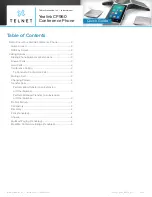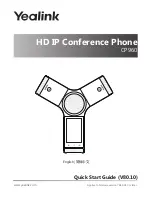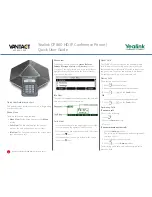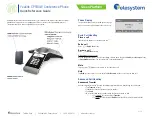
6
Important Battery Information
•
Use only batteries and chargers approved by the
phone manufacturer.
•
When a charger is not in use, disconnect it from the
power source. Do not leave the battery connected
to a charger for longer than a week; overcharging
may shorten its life.
•
If left unused, a fully charged battery will discharge
itself in about a week at room temperature.
•
Never use any charger or battery that is damaged
or worn out.
•
Use the battery only for its intended purpose.
•
Do not short circuit the battery. Accidental short
circuiting can occur when a metallic object
(e.g. coin, clip, or pen) causes direct connection of
the + and - terminals of the battery (metal strips on
the back of the battery), for example when you
carry a spare battery in your pocket or purse.
Short circuiting the terminal may damage the
battery or the connecting object.
•
Leaving the battery in hot or cold places, such as in
a closed car in summer or winter conditions,
reduces the capacity and lifetime of the battery.
Always try to keep the battery between 59°F and
77°F (15°C and 25°C). A phone with a hot or cold
battery may temporarily not work (or charge) even if
the battery is fully charged. NiMH battery
performance is particularly limited in temperatures
below 14°F (-10°C).
•
Temperature extremes affect the ability of your
battery to charge: it may require cooling or warming
first.
•
When the battery is not in use, store it uncharged in
a cool, dark and dry place.
•
The battery is a sealed unit with no serviceable
parts. Do not attempt to open the case.
•
It is recommended that you allow your battery to
fully discharge before you recharge it.













































